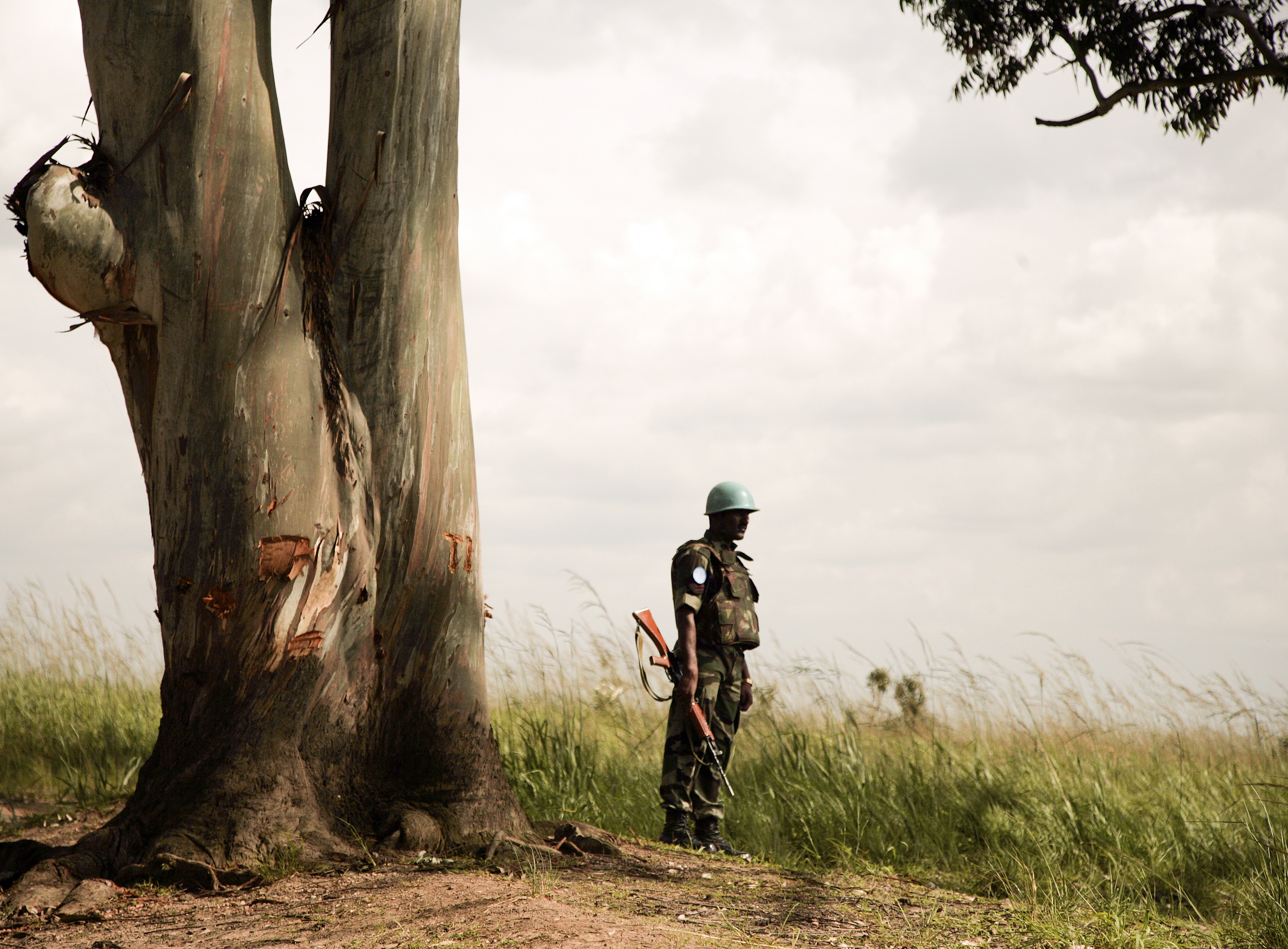
EXECUTIVE SUMMARY
On June 29th 2012, the United Nations Security Council welcomed the Secretary General’s ‘Regional Strategy to address the threat and impact of the activities of the Lord’s Resistance Army’ (‘UN Regional Strategy’ or ‘Strategy’). The Strategy was well received by local and international civil society organizations as an ambitious framework with the elements of a comprehensive response. Then, as now, the message was clear – if fully implemented, the Strategy could resolve this devastating 26-year conflict and pave the way for the long-term recovery of the affected region and its people.
The governments of the Democratic Republic of Congo (DRC), Uganda, South Sudan, Central African Republic (CAR), and Sudan bear the primary responsibility for defeating the Lord’s Resistance Army (LRA) and protecting their populations. However, under the Strategy, United Nations (UN) departments, agencies, and offices have committed to augment their efforts, and those of the African Union (AU), by taking specific action to address the threat of the LRA. While there is a limit to how much progress can have been made in the five months since the Strategy was adopted, this report seeks to assess progress made by UN actors against the benchmarks outlined in the UN Regional Strategy.
Progress towards achieving the Strategy’s five goals has been slow. There is no comprehensive plan in place to implement the Strategy and the situation on the ground is largely unchanged. The African Union Regional Cooperation Initiative (AU-RCI) – a framework for cooperation on counter-LRA activities among the DRC, Uganda, South Sudan, and CAR – has not been operationalized. Its military component, the Regional Task Force (AU-RTF), lacks capable troops and resources, clear command and control, and access to key LRA safe havens. There has been little progress in activities to enhance efforts to protect civilians, with few of the planned training programs underway. UN departments, agencies, and offices have not finalized planning for programs that donors can fund. Demobilization, Disarmament, Repatriation, Resettlement and Reintegration (DDRRR) activities remain limited, and there are still humanitarian needs in LRA-affected areas that remain unmet. And on the ambitious goals of peacebuilding and long-term development, even those projects that have been identified as priorities and that require no further funds have not been advanced.
There are significant political barriers to implementing the UN Regional Strategy and to achieving cooperation among the regional governments. Each of the Strategy’s goals requires cross-border cooperation and full political commitment from each government. This is especially true of its first goal, the full operationalization of the AU-RCI, which depends on close military and intelligence coordination. Tensions between the DRC and Uganda, however, and tepid political commitment from each of the regional governments – DRC, South Sudan, CAR, and Uganda – have prevented meaningful progress in implementing the AU-RCI and the AU-RTF. Given the thorny political issues involved in achieving military cooperation, and the shortage of funds made available to support operations, it is possible that the AU-RTF will remain stalled. Because supporting the AU-RCI is a core piece of the broader UN Regional Strategy, many UN offices have assumed a ‘wait and see’ approach to key activities, even those entirely independent of the AU-RTF. As a whole, UN departments, agencies, and offices, have shown a lack of urgency in implementing those elements of the Strategy for which they are directly responsible. As a result of this dynamic, the Strategy thus far has failed to achieve any of its objectives. Without urgent action, it will fail permanently.
The costs of failing to implement the Strategy are high. Civilian populations will continue to endure the predations of the LRA. Regional stability – already fragile –will be further threatened, and the prospects for future UN-AU collaboration weakened. The efforts invested in the Strategy will be wasted.
A two-tiered approach, with dynamic leadership from the Security Council and the Secretary General, can put the Strategy back on track to achieve its goals.
First, the Security Council and Secretary General should pursue aggressive diplomacy at the highest levels to ensure regional governments and the African Union fulfill their commitments under the AU-RCI. Political challenges must be overcome, not used as an excuse for abandoning existing international commitments. The Security Council and Secretary General must enlist greater commitment from their counterparts in the AU Peace and Security Council and the AU Chairman, as well as from regional governments, to forge a political path for each of the regional governments to play a constructive role in the AU-RCI and to spend the political capital necessary to operationalize the AU-RTF.
Second, the UN should recognize that the vast majority of the UN Regional Strategy can and should be implemented independent of the AU. With or without the AU military cooperation framework in place, there is progress to be made on the protection of civilians, demobilizing and disarming former LRA members, ensuring humanitarian assistance meets needs, and progressing peacebuilding and development activities in LRA-affected areas.
The role of Abou Moussa, Special Representative of the Secretary General (SRSG) and Head of the United Nations Office Regional Office for Central Africa (UNOCA), remains very important, particularly in forging a common regional approach to the LRA violence and creating cross-border cooperation and the exchange of information between UN missions. SRSG Moussa and Department of Political Affairs representatives have done an excellent job in raising awareness of LRA violence and drafting a Strategy to marshal UN resources – diplomatic, military, and economic – that will have an enormous impact if implemented. But that framework will not be achieved without renewed public support from the Security Council and action by the Secretary General, who must engage directly with their counterparts at the African Union as well as regional governments to ensure that the full implementation of all activities in the UN Regional Strategy is made a political priority.

